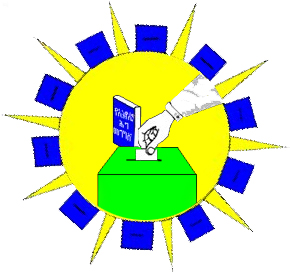Ethiopian government says opposition wants poll violence
 ADDIS ABABA (Reuters) – The Ethiopian opposition may provoke violence during the first national elections since a disputed 2005 poll ended with street riots and the jailing of politicians, the ruling party has said.
ADDIS ABABA (Reuters) – The Ethiopian opposition may provoke violence during the first national elections since a disputed 2005 poll ended with street riots and the jailing of politicians, the ruling party has said.
The government said in 2005 that the violence was planned to force an unconstitutional change after a vote in which both sides claimed victory. Security forces killed about 200 people on the streets and the top opposition leaders were imprisoned.
The ruling party said late on Tuesday that Beyene Petros, leader of the main opposition coalition Medrek, told thousands of supporters it was possible to oust the government violently.
“He said that if the public is not happy with a government they can create some kind of problem, can protest and can bring down the government without elections,” ruling Ethiopian Peoples’ Revolutionary Democratic Front (EPRDF) spokesman, Sekuture Getachew, told Reuters late on Tuesday.
“We can only guess they are inclining toward some kind of violent activities,” said Sekuture.
Beyene called the allegations “outrageous” and said his speech only mentioned constitutional means of removing governments, such as votes of no confidence.
“Violence was not implied at all in my argument,” Beyene told Reuters. “I was just talking about normal democratic process. They’ve been trying to find something in an effort to incriminate us.”
POSSIBLE PROSECUTIONS
The political climate in sub-Saharan Africa’s second most populous country is closely watched by foreign investors showing interest in oil and gas exploration and large-scale farming.
Analysts say the government is keen to avoid a repeat of the 2005 violence and is closely watching the language opposition leaders use in their speeches.
Prime Minister Meles Zenawi is expected to win the May 23 poll comfortably. The opposition says this is because their candidates are harassed and people in remote parts of the country are offered incentives to vote for the EPRDF.
The government says the opposition is trying to discredit the poll.
Meles has agreed an electoral code of conduct with three parliamentary opposition parties. Medrek refused to sign, saying issues including reform of the electoral board were left out.
Meles has warned that politicians who violate the code of conduct may be prosecuted after the elections for contravening the country’s constitution.
“Any statements that propagate violence and illegal ways of changing government are banned by the code of conduct,” Sekuture said.
Meles was hailed as part of a new generation of African leaders in the 1990s, but rights groups have increasingly criticized the former rebel for cracking down on opposition.
(Editing by David Clarke)

Average Rating